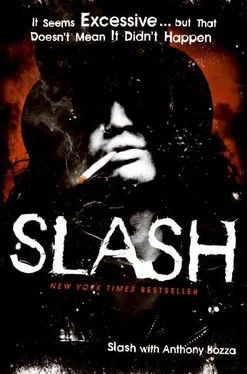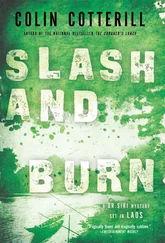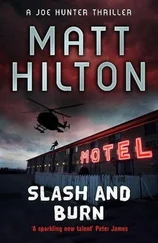All of those conditions pointed to a situation where the band and everything around it was arranged to be under Axl’s control. Starting with the name issue and moving on to the fact that he wanted every player under a contract that could be terminated for “bad behavior”—this really wasn’t a healthy thing. Nor was the inconsiderate treatment of the people who came by the thousands to see us, and the crew and everyone in our entourage who had to work overtime every single night that we went on late and later. It became really humiliating for me to continue because as much as we were always considered a brash rock band, we were always known to take care of our business. It sucked for the band and the crew that we couldn’t always do our best because we were handicapped by situations that the rest of us weren’t directly responsible for.
There is probably no better way to build up resentment or to make a touring ensemble or any other kind of collective endeavor hate-heavy than by promoting a lack of respect. I’m not one to get angry that easily—you have to really push me—so I remained as elastic as I could going through this tour, but it started to wear on me. There were so many great band opportunities that were shot down left and right because Axl refused to take them—usually those decisions were made between him and Doug and sometimes the rest of us were just informed later. Yet, at the same time, the band was amazing, and anyone who went to one of those magic Guns nights during the two and a half years that we toured was blown away. We were an unreal band with an unreal singer; Axl was just amazing. Despite all of this tension going on behind the scenes, I still had some onstage chemistry with him that was incredible: we did amazing things every single night that were godlike. There were nights when certain moments we would hit gave me goose bumps.
All in all, it was a very tough up-and-down cycle to deal with. That’s my side of the story; there’s Axl’s, of course. I’m sure he’d say that we drank too much and did too many drugs. That’s true, of course; I can only vouch for myself when I say, yes, I did, but all things considered, never once in the history of the band was a show ever canceled or started late because of the guys in the band. Regardless of anyone’s habits, we back-line musicians were always there. There were a few close calls and a few shows that might have been pretty sloppy, but we are talking about a rock-and-roll band, after all. There were complaints throughout the tour from Axl’s camp about what we were doing—“we” being Duff and Matt and me—and Izzy complained about our ways, too. They can say what they like about how we were living; our habits didn’t affect the greater machine at all when it came to getting the job done. Of course that’s my point of view; I am quite sure that Axl and the other guys have theirs that might differ tremendously from what I have to say.
I’M NOT GOING TO EVEN PRETEND THAT I remember every detail of the two and a half years we spent touring Use Your Illusion I and II . Even if I did, I don’t think recounting every gig, every highlight, every memory, and every milestone would do any of it justice: listing it all would make it seem way more boring than even the dullest day ever was. I’m just going to hit on the shows, the “incidents,” the conflicts, and the ultimate highs that stand out among a two-and-a-half-year run that was such a thrill and such a whirlwind of good and bad that I’m daunted by trying to relate the experience at all.
The start of the tour was intense and exciting; we were walking into an amazingly huge limelight and had thousands of people coming to see us. I had never experienced that feeling so directly. We had played to massive crowds at festivals before, which is one thing: usually we were second or third before the headliner, so the energy was high then, but it is quite another thing to go out and play an hour and forty-five minutes to three hours for eighty thousand people who are there just for you.
I used to spend my time after the gigs walking around the venue, checking out the size of the empty arenas and the scale of our stage and production, and I was never short of amazed. I had plenty of time to do that every night, because usually it took us as long to leave as it did for us to get on—but that’s another story. Let’s just say we couldn’t all go until the “time was right.”
In any case, I’d seen enough stage productions on a grand scale since I was a kid that I was rarely impressed, but I’d walk around and check out our setup with stars in my eyes: to be part of that reality was a dream come true. We owe thanks to the great crew, all of the amazing guys who put it all up and took it all down every day. I’d sit and watch them disassemble it; all the union people, loading these massive stage components into a fleet of semi trucks—it was fuckin’ bitchin’. We were on a run at that point, on such a high that even the negative stuff was overshadowed by how awesome it was for us every day. Unfortunately, that intense, routine high solidified a pattern: the pissed-off-to-elated yin yang we’d done for so long had gotten us there so hey… why change now? All things considered, we kept it up pretty well; it wasn’t until way later that it inevitably exploded.
After the Rio gigs, we started off with three warm-up club gigs—with Blind Melon in L.A., Faith No More in San Francisco, and Raging Slab in NYC. Raging Slab were amazing: those guys showed up in a VW bus that they’d driven down all the way from upstate somewhere with all of their gear; and there we were in our limos. I thought it was great that we had bands like that on our bill—one perk of being at that level is that you really can do whatever the fuck you want.
From there we set off on the main event—touring arenas with our massive production and stage. That whole tour was stadium after stadium. We had Dizzy Reed, Teddy “Zig Zag,” the horn section, and the girl singers. It was such a crazy setup compared to what we’d been used to. First of all there was no set list—we never did the same set on any night. We had our standards, like “November Rain,” “You Could Be Mine,” “Paradise City,” and “Welcome to the Jungle,” but the rest was up for grabs.
The girls—the backup singers and the horn players—had to be onstage the entire time, which posed problems that we hadn’t thought of, like, what if they had to pee? I’d made Ted Zig Zag the pit boss of that little support band—he’d actually recruited them—and it was funny to watch him deal with them. Those girls would argue over their outfits, who got to wear what; we’d never experienced crazy shit like that on one of our tours before. When the girls were having their periods, which somehow seemed to be synchronized, I found it was best to just stay out of their way altogether.
Axl was an entity unto himself on the road; after a while we only saw him onstage or on the plane. Izzy was much the same. Traveling between gigs, Duff, Matt, and I hung with the girls: there was Lisa Maxwell, the head horn player, who played tenor sax; Anne, who played trumpet; and this bisexual New York City chick whose name I can’t remember who played baritone sax. And there were the two background singers, these cute, racy little chicks who could usually be found arguing over their wigs. There was Roberta, this very pretty skinny black girl, and Tracy, who was this cute little mulatto, and they were very cool.
THE SHOW THAT SET THE PACE FOR WHAT was to ultimately unhinge the tour took place in Uniondale, New Jersey, at the Nassau Coliseum, where we went on late. That night, however, Axl apologized to the fans for being late, which, once it became a regular occurrence, he never bothered to do again.
Читать дальше
Конец ознакомительного отрывка
Купить книгу




![Сол Слэш Хадсон - Slash. Демоны рок-н-ролла в моей голове [litres]](/books/387912/sol-slesh-hadson-slash-demony-rok-n-thumb.webp)


